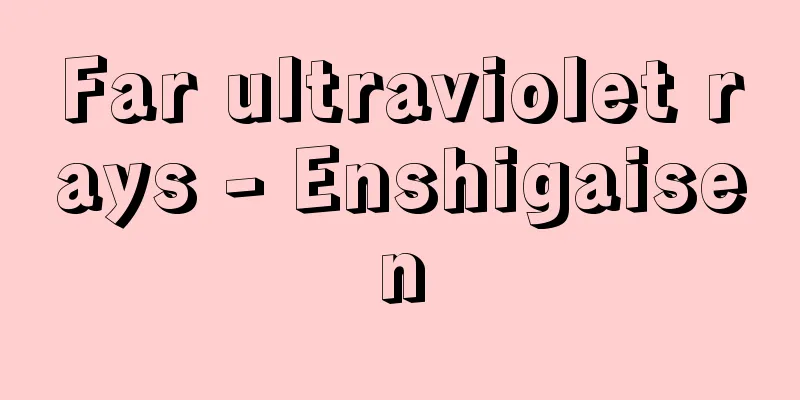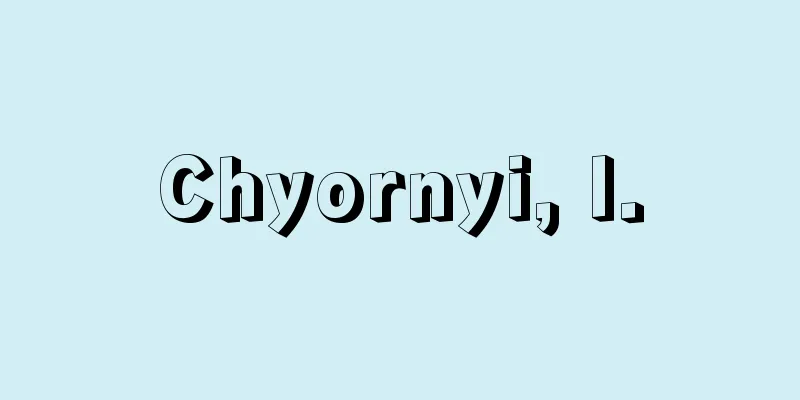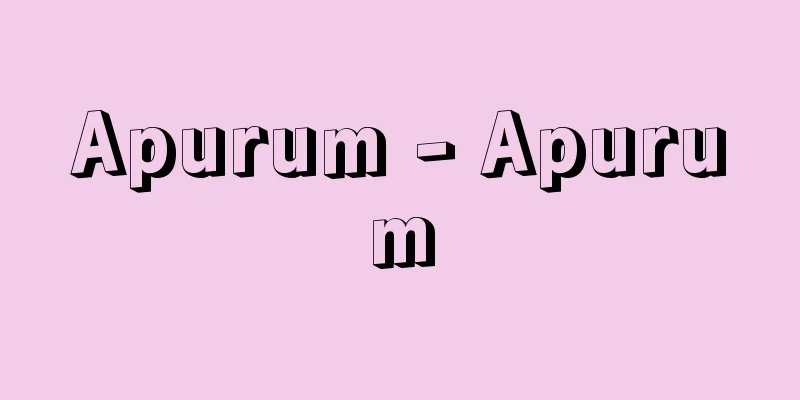Far ultraviolet rays - Enshigaisen

|
The wavelength range of visible light spans from 379 to 750 nm. The shorter wavelength range, from 10 to 379 nm, is called the ultraviolet range. Within this range, the range from 10 to 190 nm is called the far ultraviolet range. Light in this range can be photographed with a Schumann plate, and light from 110 to 185 nm can be split using a fluorite prism. [See alternative terms] Vacuum ultraviolet Source: Morikita Publishing "Chemical Dictionary (2nd Edition)" Information about the Chemical Dictionary 2nd Edition |
|
可視光線の波長領域は379~750 nm に及ぶ.それより波長の短い10~379 nm の領域を紫外領域という.この領域のうち10~190 nm を遠紫外領域という.この領域の光はシューマン乾板で撮影することができ,110~185 nm までは蛍石のプリズムで分光できる.[別用語参照]真空紫外線 出典 森北出版「化学辞典(第2版)」化学辞典 第2版について 情報 |
Recommend
Nan Taiheiki - Nan Taiheiki
Written by Imagawa Ryōshun (Sadayo), a military c...
Oxonium ion
In aqueous solutions, H + hydrates to form H3O + ...
Andean cat - Andean cat (English spelling)
It is a member of the Felidae family of the Carni...
Bourguiba
Tunisian politician. He joined the Dostoire Party ...
Hadhramaut - Hadhramaut (English spelling)
A plateau region in the eastern part of Yemen, on...
Thank you paper - Raishi
A term used in paleography. Originally, it referre...
Omoado - Omoado
...Another name for shite. However, this name is ...
La Chartreuse de Parme - The Abbey of Parme
A full-length novel by French author Stendhal. Pu...
Trelleborg
The remains of a Viking-era fort in western Zealan...
Brutalism
… While the mainstream of British architecture in...
Cast
This usually refers to a plaster bandage. Gips (Ge...
Infieruniyo Culture - Infieruniyo Culture
...A prehistoric culture that was distributed in ...
Conomurex luhuanus (English spelling)
A gastropod shell of the family Polytminae (illust...
Ise ebi (Japanese spiny lobster)
A shrimp of the family Pleistidae in the Crustacea...
Antipsychiatry - hanseishinigaku (English spelling)
An ideological trend in psychiatry that emerged in...









